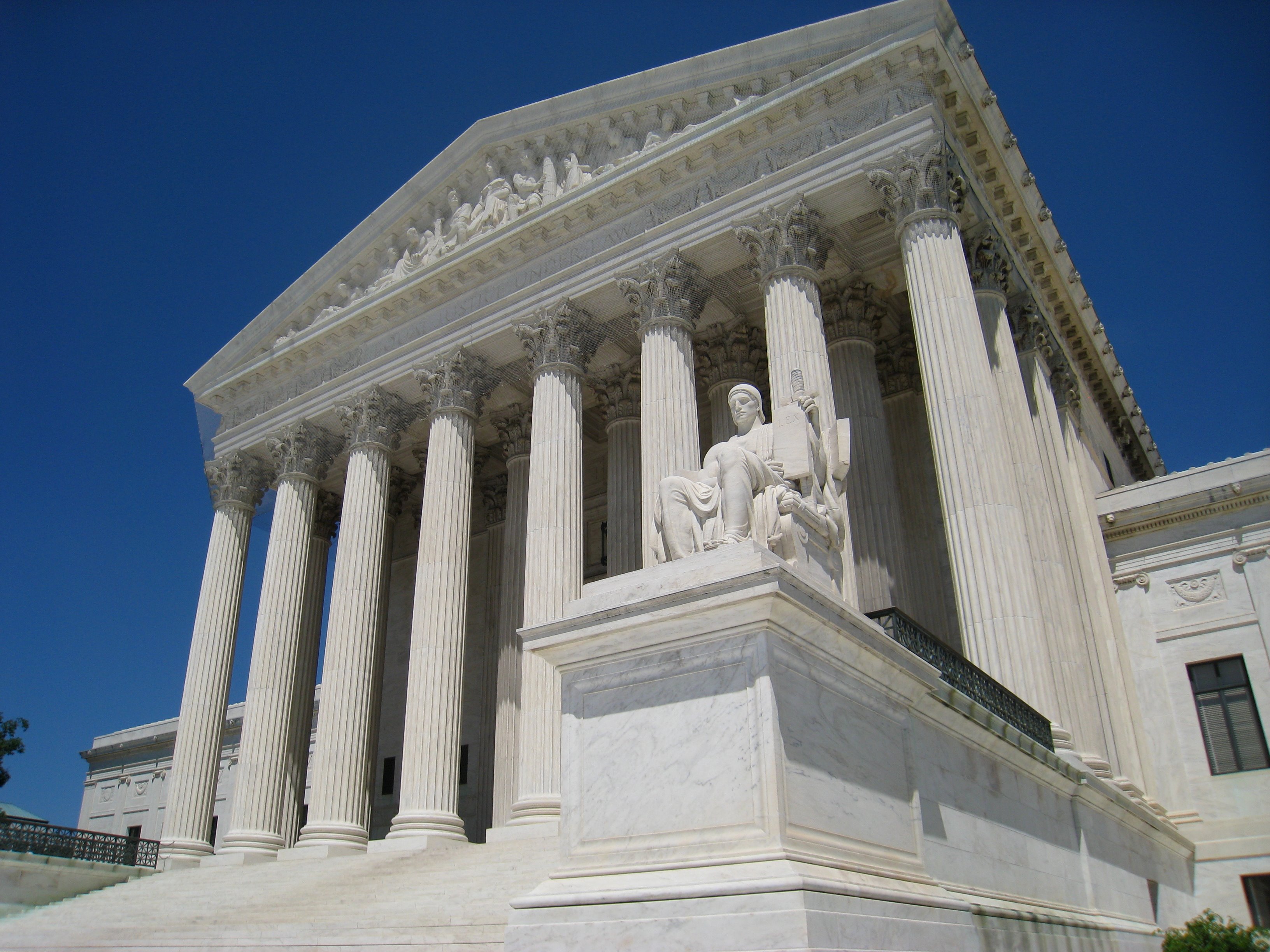WASHINGTON — Negative campaigning and mudslinging may be a fact of life in American politics, but can false accusations made in the heat of an election be punished as a crime?
Videos by Rare
That debate makes its way to the Supreme Court next week as the justices consider a challenge to an Ohio law that bars false statements about political candidates during a campaign. The case has attracted national attention, with groups across the political spectrum criticizing the law as a restriction on the First Amendment right to free speech.
Even Ohio’s attorney general, Republican Mike DeWine, says he has serious concerns about the law. His office filed two briefs in the case, one from staff lawyers obligated to defend the state and another expressing DeWine’s personal view that the law “may chill constitutionally protected political speech.”
“The thing we see time and time again in political campaigns is that candidates use the law to game the system by filing a complaint,” DeWine said in an interview with The Associated Press.
In an attempt at humor, satirist P.J. O’Rourke and the libertarian Cato Institute filed a widely circulated brief ridiculing the law and defending political smear tactics as a cornerstone of American democracy.
O’Rourke’s brief celebrates a history of dubious campaign remarks including President Richard Nixon’s “I am not a crook,” President George H.W. Bush’s “Read my lips: no new taxes!” and President Barack Obama’s “If you like your health care plan, you can keep it.”
The Ohio law makes it illegal to knowingly or recklessly make false statements about a candidate during an election. The high court is not expected to rule directly on the constitutional issue, instead focusing on the narrower question of whether the law can be challenged before it is actually enforced. The outcome could affect similar laws in at least 15 states.
The case began during the 2010 election, when the Susan B. Anthony List, an anti-abortion group, planned to launch a billboard campaign accusing then-Democratic Rep. Steven Driehaus of supporting taxpayer-funded abortion because he backed President Barack Obama’s health care overhaul.
Driehaus urged the Ohio Elections Commission to block the ads, arguing that the proposed billboard was false under Ohio law. Given the threat of legal action, the billboard owner declined to run the ad.
Driehaus eventually lost his re-election bid and withdrew his complaint before it could be fully heard. The Susan B. Anthony List then challenged the state law as unconstitutional, but a federal judge ruled against the group, saying it hadn’t suffered any harm in the case and thus didn’t have standing to sue. The 6th U.S. Circuit Court of Appeals in Cincinnati agreed.
The Susan B. Anthony List argues that it continues to face the threat of prosecution under the law, creating a chilling effect on speech that gives the groups a right to challenge the law without waiting for a ruling from the election commission.
The Obama administration backs that argument, even though White House officials have steadfastly denied the proposition that the health care law allows abortions funded by taxpayer dollars. The administration says a “credible threat of prosecution” will chill the Susan B. Anthony List from engaging in “the very type of speech to which the First Amendment has its fullest and most urgent application.”
In a telephone interview, Driehaus said the work of the Ohio elections commission is needed “to call people into account when spreading malicious lies.”
“Not every candidate has millions of dollars to spend on TV ads, and it’s difficult to get the truth out, especially when constituents are bombarded with messages,” Driehaus said from Swaziland, where he is a Peace Corps director.
Lawyers for the state of Ohio assert there is no “credible threat of prosecution” in the case because it never went beyond the very preliminary stages of review before it was dismissed. The fact that the Susan B. Anthony List might use the same language again is too vague to give the group standing to challenge the law, the state argues.
Richard Hasen, an election law expert at the University of California at Irvine law school, said he believes justices will be skeptical of the lower court’s finding that the Susan B. Anthony List had no standing to sue. He said the Supreme Court will likely find that the lower court had prematurely thrown out the case, then send the matter back to address the free speech questions in light of the high court’s 2012 ruling in United States v. Alvarez. That decision struck down a federal law that made it illegal to lie about winning military medals or ribbons.
“The Susan B. Anthony case hints at how tough it is going to be going forward to get the current Supreme Court to accept ‘truth commissions’ reviewing the truth or falsity of campaign speech as constitutional,” Hasen said.
Meanwhile, the Susan B. Anthony List says it’s moving ahead to purchase similar billboards in opposition to Democratic U.S. senators in Arkansas, Louisiana and North Carolina. Those states have similar laws banning false campaign speech. But the group is declining to run billboard ads in Ohio until the case is resolved, said the group’s president, Marjorie Dannenfelser.
The case is Susan B. Anthony List v. Driehaus, No. 13-193.
Follow Sam Hananel at http://twitter.com/SamHananelAP
Follow Hope Yen at http://twitter.com/hopeyen1
Copyright The Associated Press



